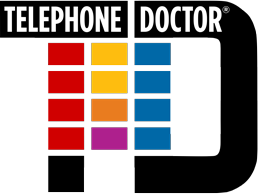By Nancy Friedman, Keynote Customer Service Expert; President, Telephone Doctor Customer Service Training St Louis MO.,
For a few seasons I was hooked on American Idol. If you’re not familiar with the program (and there are some who aren’t, including my husband!), please keep reading. I believe what we’re talking about here will make sense to you.
On the show, when one of the judges ripped into the contestant with negative remarks on how poorly they’ve done and tells them they can’t even imagine how they got this far in the contest and beats them up pretty bad, the contestant usually just said, “OK.”
OK? It’s OK I stink? They are approving a negative. What’s wrong with that picture? You and I know they are crying on the inside – mortified and hurt.
If your boss told you that you weren’t going to be paid this week, would you say, “OK?” I doubt it! You’d most probably ask, “WHY?” or “What happened?” And, you’d be justified in asking.
I’m amazed at the number of people who approve a negative. They say “OK” so quickly without any thought.
In customer service when a customer is complaining or wants to cancel an order, it’s really amazing how many times the person helping you says, “OK.”
It is simply NOT “OK.” We need to find out the ‘why’ part.
Think of any question or statement someone might ask or say to you. Something like, “Your outfit is ugly.” Are you going to come back with “OK?” I doubt it. You’d probably defend your purchase somehow, some way. And even if you didn’t defend the purchase, you might say something to salvage the conversation other than “OK.” “OK” is probably not even on your radar screen under those circumstances.
Now, take this entire process into your work area. When customers complain, they don’t need or want to hear the word “OK.”
Customers need and want to hear, “Oh my, I’m so sorry that happened?” or words to that effect that are far more appropriate.
I was a member of an association a while back and decided to cancel my membership. And when I called into the organization to cancel and explained, “I’ll not be renewing my membership.” I received a perfunctory, “OK, thanks.” That was it. No one called to find out why. No one wrote to find out why. My PERCEPTION was no one cared.
Recently at a bank, I called to let them know the last statement I received was incorrect. Without missing a beat, the employee said to me, “OK.” I told her it wasn’t OK that my statement was wrong. Why approve a negative?
Sometimes “OK” just rolls out of our mouth way too fast. And we think it might be the appropriate thing to say. Trust me, it’s not.
“OK” is a great answer when someone wants to take you to lunch. “OK” is a wonderful statement when the news is positive.
It is not great when the statement or conversation is negative or when the customer has an issue that concerns them.
It’s also a pretty weak word. The other day someone asked me where I was from. I said, “St Louis” and they said, “OK.” As though they were approving where I lived.
Careful how you OK things.

